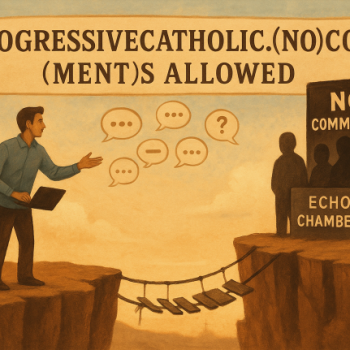THANK YOU. THANK YOU FOR GETTING IT. AND THANK YOU FOR SAYING IT SO ELOQUENTLY.
From Pop-Culture.org, a thoughtful, provocative, groovy site run by a church in Palatine, Illinois. Bless them.
Listening, Learning, Loving
The God Factor: The Spiritual Lives of Public PeopleBy Diane Strzelecki ([email protected])
I’ll admit that what initially piqued my curiosity regarding Cathleen Falsani’s The God Factor was a blistering book review in the Wall Street Journal. In her review (“A Different Kind of Celebrity Worship” April 1, 2006; Page P11),Dawn Eden seems to take Falsani to task for being even remotely interested in what celebrities have to say about their spiritual lives. She asks “Do cultural icons really have something special to teach us about faith — something we couldn’t learn from interviews with people whose names don’t sell books?” A sharp question, and I don’t mean sharp as in ‘intellectual.’ More like pointed and judgmental. So I read the book to find out what offended Eden so much.
The God Factor contains quite a diverse selection of interviewees, from Hugh Hefner to Elie Wiesel to Anne Rice to Senator Barack Obama. Although I might not be interested in their career choices or their politics—and I might not always agree with their religious perspectives—Falsani drew me in so that I was interested in exploring what they had to say about spirituality. I looked at the book not as a resource to enrich my own faith, but as an opportunity to move outside of myself, my predispositions and perspectives. I saw it as a chance to grow.
What first struck me was Falsani’s ability to put her subjects at ease. At one point she stumps Hugh Hefner with the question, “What films have you learned the most from spiritually?” He stumbles a little, as if tentatively groping in the dark to find the ‘right’ answer, until Falsani tells him hers: Harold and Maude.
“Oh,” Hef says, his face folding into a big grin and the tension seeming to evaporate between us. “Oh, I love Harold and Maude. Well, now you’re broadening the definition of spiritual in a really wonderful way.”
Falsani also has the ability to help the reader see the more endearing characteristics of her subjects, whether it be the warm welcome and thoughtful hospitality of author Laura Esquivel (Like Water for Chocolate), the self-effacing humanness of U2’s Bono, or the expansive, loving nature of writer Studs Terkel.
But Eden didn’t seem to find anything endearing to share in her review: “Now we have theological pensées from a line-up that includes moviemakers (David Lynch, Harold Ramis), gray eminences (Elie Wiesel, Studs Terkel), sports figures (Cubs manager Dusty Baker, hoops star Hakeem Olajuwon), a reverend (Al Sharpton) and a guy spinning plates (White House adviser Michael Gerson).” Ouch. If Eden is thinking that spiritual depth can only be found within people whose “names don’t sell books,” she would surely be disappointed with me. And my co-workers. And even, maybe, my pastor. We’re all complicated human beings, living lives that sometimes reflect our spiritually. We all follow a kind of faith that guides our lives and our decision-making, and every day we try to do things right. Each of us normal folk – like any celebrity – is a work in progress.
Philippians 8:4 says, “Finally, brothers, whatever is true, whatever is noble, whatever is right, whatever is pure, whatever is lovely, whatever is admirable—if anything is excellent or praiseworthy—think about such things (NIV).” I found many admirable things to think about in The God Factor. The observation that Cubs Manager Dusty Baker reads from the book of Proverbs every day of every month—Proverbs 1 for day one and so on – and is convinced that there is more to life than just baseball. The grace that jazzman Kurt Elling gives a theater full of shattered people shortly after 9/11, when he acknowledges their pain and, in his own way, reassures them all that God is still with us by singing, “Not While I’m Around,” a Stephen Sondheim tune from the musical Sweeney Todd:
Nothing’s gonna harm you, not while I’m around.
No one’s gonna harm you, no sir, not while I’m around.
Demons are prowling everywhere nowadays.
I’ll send them howling, I don’t care…I’ve got ways.
No one’s gonna hurt you, no one’s gonna dare.
Others can desert you, not to worry, whistle, I’ll be there.
Demons’ll charm you with a smile, for a while.
But in time, nothing can harm you, not while I’m around.Then there’s the Godfather of Hip-Hop, Russell Simmons, who speaks a simple but great truth that we all can learn from:
“Whatever dirty [expletive]’s going on in your mind, let it go,” he says. “Try to practice it for a while, and then one day you’ll wake up and say, ‘I’m not interested in that.’ Start practicing good things. It’s the practice.Practice yoga. Be a practicing Christian, a practicing Muslim, a practicing Jew.”Right on, Russell. “Practice what you preach,” as the saying goes. For example, how can we preach about love when we are not doing it? By having good conversations – free of condemnation, judgment, and self-righteousness – Falsani practices that kind of love. If we can’t talk to people, how can we get to know them? If we can’t get to know people, we don’t have the right to show them what we think.
I think the ability to love someone, no matter where they are at, is the key to having these good conversations. I’m not always good at that kind of love, are you? In fact, I readily admit often dismissing what someone has to say because he or she ‘doesn’t get it’ – ‘it’ being who God is, what Jesus has done for me, the truth as I and other believers see it. I wrestle daily with transcending my judgmental nature.
Let me be clear, this goes both ways. I think that Jesus would want a believer to look for beauty and nobility in the life of an atheist, to listen what the atheist has to say, to accept them for the imperfect work in progress the atheist is. Likewise, agnostics can be willing to accept the joy and faith of a believer as more than just fairy-tale stuff, but the sustenance of a life, of another work in progress.
It seems that what disappoints Eden the most is how Falsani “sidesteps an issue that her readers might like to have seen addressed: the disconnect between her interviewees’ words and their actions.” Ouch again. Does anyone consistently walk the talk? Can such a lofty standard even be attained? How can one work in progress take another work in progress to task for hypocrisy?
I’ve met few regular guys or gals whose actions reflect their beliefs 24/7. (This is not judgment; this is just the reality of who we are). The more typical example of regular folk is the man who, after eschewing Jesus and God for cigarettes and beer for most of his life, prays for God’s mercy for his dying daughter-in-law. Or the Bible-reading, churchgoing woman who lashes out at her husband in ugly, hurtful ways. Or the Christian who, because of a person’s lifestyle or career choices, categorically rejects anything that person has to say.
I’ve always viewed celebrities as just regular folks elevated to fame and fortune by virtue of their talents and our opinions. True, we’re always curious about what makes these celebrities tick, and I learned a lot about the people interviewed by Falsani. However, talk is cheap, even if it is entertaining and interesting. All in all, it’s really not what you say, it’s how you live. If a believer was able to live in a way that was completely honest, loving, real – never hypocritical or judgmental – we might just call him Jesus. At least we’d be interested in what he had to say.















